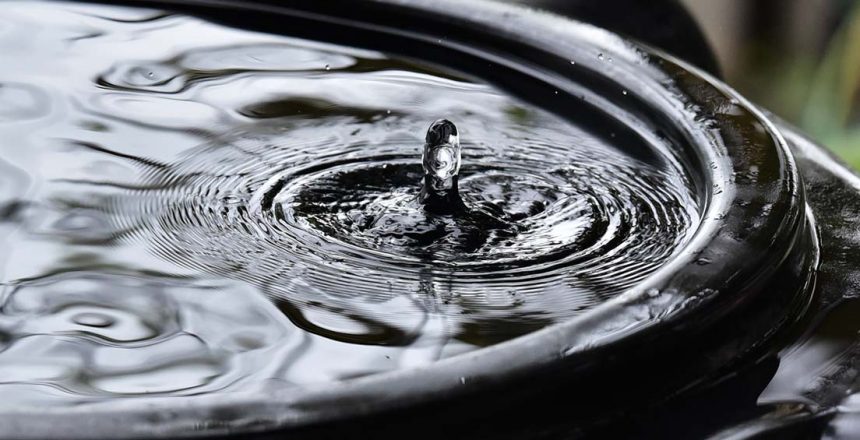Rainwater is a natural resource that has been used by humans for centuries. It is often perceived as clean and pure, and many people wonder if it is safe to drink rainwater. In this comprehensive guide, we will explore the topic of drinking rainwater, examining its potential benefits and risks. We will also discuss various factors to consider when deciding whether or not to drink rainwater.
The Composition of Rainwater:
Rainwater is essentially distilled water that forms as a result of the water cycle. It starts as water vapor in the atmosphere, condenses into droplets, and then falls as precipitation. Rainwater is generally considered to be pure and free from contaminants found in other water sources, such as rivers and groundwater. However, its composition can vary depending on several factors, including air pollution and geographical location.
Collecting Rainwater:
To drink rainwater, it must be collected in a clean and safe manner. Many people use rain barrels or collection systems to gather rainwater for various purposes, including drinking. It is important to ensure that the collection system is made of food-grade materials and kept clean to prevent any contamination. The first flush of rainwater, which may contain debris or pollutants from roofs and gutters, should be discarded before collection.
Benefits of Drinking Rainwater:
One potential benefit of drinking rainwater is its purity. Rainwater is often free from harmful chemicals, such as chlorine or fluoride, commonly found in tap water. Some people find rainwater to have a softer and more refreshing taste compared to other water sources. Additionally, rainwater is usually naturally soft, meaning it has a low mineral content, which can be beneficial for people with certain health conditions.
Risks and Considerations:
While rainwater may seem pure and clean, there are some risks and considerations to keep in mind before consuming it. The primary concern is the potential for contamination. Rainwater can pick up pollutants and microorganisms from the atmosphere and the surfaces it comes into contact with during its descent. These contaminants can include bacteria, viruses, heavy metals, and pesticides. Therefore, it is essential to assess the quality of the rainwater before drinking it.
Testing Rainwater Quality:
To determine if rainwater is safe to drink, it is advisable to have it tested for contaminants. Testing can be done by certified laboratories that specialize in water analysis. They can assess the presence of bacteria, parasites, chemicals, and heavy metals. Testing results can provide valuable information about the safety of the rainwater and help in making an informed decision regarding its consumption.
Filtration and Treatment:
If rainwater tests positive for any contaminants or if you are unsure about its quality, it is recommended to treat and filter the water before consumption. Several methods can be employed to purify rainwater, including boiling, disinfection with chlorine or ultraviolet (UV) light, and using water filtration systems. It is essential to choose the appropriate method based on the specific contaminants present and the desired level of purification.
Local Regulations and Recommendations:
It is important to be aware of local regulations and recommendations regarding rainwater harvesting and consumption. Some regions have specific guidelines or restrictions on the use of rainwater. It is advisable to consult with local health authorities or environmental agencies to ensure compliance with any regulations and to obtain guidance on safe practices for collecting and drinking rainwater.
Alternative Uses of Rainwater:
If drinking rainwater is not deemed safe or practical, there are still various other uses for collected rainwater. Rainwater can be utilized for household chores, gardening, irrigation, or even for flushing toilets. This way, rainwater can be conserved and used effectively without the need for consumption.
In conclusion, while rainwater is generally perceived as pure and clean, it is crucial to assess its quality before drinking it. Rainwater can contain contaminants that may pose health risks if not properly treated. Testing the water and employing appropriate filtration and treatment methods are essential steps to ensure its safety. It is also important to consider local regulations and recommendations concerning rainwater usage. Ultimately, the decision to drink rainwater should be based on informed judgment, taking into account individual circumstances, water quality, and available treatment options.
Monika Wassermann is a doctor and a freelance writer based in the UK who lives with her cat Buddy. She writes across several verticals, including life, health, sex and love, relationships and fitness. Her three great loves are Victorian novels, Lebanese cuisine, and vintage markets. When she’s not writing, you can find her trying to meditate more, weightlifting, or wandering around in town.
[email protected]
- Fizzy Fun: Exploring Melo THC Beverages! - April 22, 2024
- Exploring Jaw Slimming Techniques: Insights from Dr. Laura Geige - April 1, 2024
- Lip Fillers, Botox, Dermal Fillers, Anti-Wrinkle Injections in Arkley EN5 - March 22, 2024




